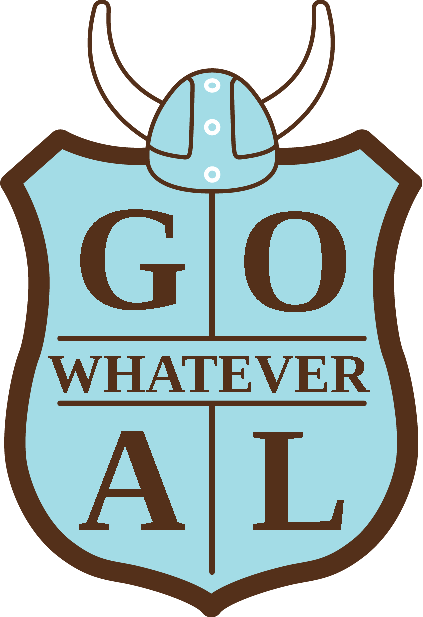
We're midway through November and, for many writers, that means it's the midpoint of the National Novel Writing Month. I don't like posting information that can be readily found elsewhere in the internet, so for those who aren't familiar with it, check out the link in the previous sentence. Basically, the TLDR version is that writers are urged to write a novel that contains at least 50,000 words before the end of November. Writing often feels like an isolated activity, so NaNoWriMo tries to change that by introducing a social aspect.
Now, that doesn't mean to say that I'm a writer, by any means. I identify more as a storyteller. Writing stories as prose or poetry is only a means to convey what I want to share. I've participated in NaNoWrimo for a number of years now, using a number of accounts (because I kept forgetting my email and/or password back then). Over the years, I've finished stories, encouraged other people to finish their stories and learned new ways to become efficient. I haven't always been successful in meeting the 50,000-word goal, but I always learn from the mistakes that I've made.
But, this isn't a post about tips or tricks on how to "win" NaNoWriMo. There are tons of those littered over the internet. I wanted to take a moment from this hectic NaNoWriMo grind to share lessons I learned that can be used by non-writers. So, enough intro, let's get to the lessons!
Start

First and foremost, start. With whatever project or endeavor that you want to pursue, the most important thing is to not only commit to doing it, but to begin doing it. I know it's a no-brainer, but you'll be surprised at how many people stop at the idea phase and don't follow through.
In writing, there's nothing more scarier than a blank page. Not deadlines, not grammatical errors, not even bad reviews. There's something so unnerving about it. Even though other people feel excited whenever they see that, because of the potential and the promise it holds, there are still many other people who are completely terrified by it. One might say that it's even more crippling than writer's block. And, that's completely okay. What matters is that you embrace that fear and conquer it.
One of NaNoWriMo's objectives is to help people get over their anxiety and just start writing. It doesn't matter if you have a plan or if you're making things up as you go. What's important is that you're putting words into the page, and the rest will take care of itself.
Do you have a side project that you've been putting off for months? Is your cellar currently housing a whole city of insects because you've refused to clean it for years? Have you gained 20 kgs because you're always "too busy" to learn how to cook, and instead rely on take-out for sustenance? Imagine if Einstein or Tesla or any other influential person held off on picking up that book or screwdriver or whatever pivotal object that changed the course of history. What do you think the world we're living in today would look like?
Sure, the world will turn even if you don't put down that microwave pizza, we're still going to Mars even if you hit the snooze button 10 times and end up missing a chance to jog every morning, and we will still be travelling on self-driving cars even if you don't learn how to code. The only one who's really going to miss out on what could turn out to be spectacular results is you. The same person whose eyebrows will furrow when you attempt to read floccinaucinihilipilification. (and no, this post is meant to serve a value)
So, get fomo no mo. Stick the key in the ignition (or just enter the car for keyless automobiles), and turn it (push it, for push-button vehicles). [Insert other inspiring quotes about starting something here] And, just START. (Preferrably after you finish reading this post, and hopefully sparing an upvote)
Hold Yourself Accountable
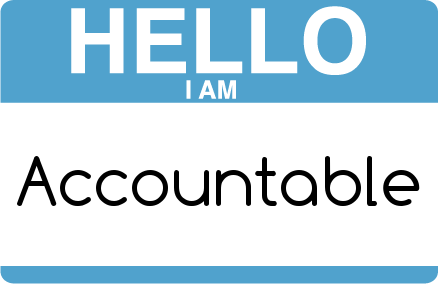
NaNoWriMo is all about holding people accountable for what they log. If someone just puts a word count that exceeds the 50,000-word goal and just chalk it up as a win, where's the accomplishment in that? The same goes for real life. If you don't put in the effort and just ride on other people's accomplishments, then you would just find yourself coasting through life aimlessly. Cheaters would argue that there are many ways to go about it, but do you really want to look back at your life and realize that your achievements are all dependent on other people?
We're not perfect, and no one expects us to be. If you make a mistake, own it, learn from it and do better next time. The best way to avoid errors is to be mindful about your actions. It's not that hard, and the sooner you realize this, the sooner the pressure of trying to be spotless would be lifted.
Let other people know that you're working on something, to increase your commitment to your endeavor. If no one does, ask people to check on your progress to keep you honest about where you're at with that you're doing.
Together, Everyone Accomplishes More Work, or put simply, TEAMWork

The line "No man is an island" by John Donne definitely holds true. Humans are social creatures by design, and we don't thrive when isolated from others. As an introvert, that's terribly hard to swallow, but I'm inclined to agree with that notion wholeheartedly.
Traditionally, writing has always been known as a solitary venture. NaNoWriMo seeks to overcome that by introducing a social aspect to the writing process. Sure, you're not able to meddle with other people's work, but it makes you feel that you're not alone with what you're doing. Whether it be experts available to give advice, writing buddies you can bounce ideas with, passionate peers who are free to critique your work, or just people who give encouragement, the social aspect has been working out great so far.
Don't be afraid to seek help from others, it might make whatever you're doing more convenient. Give people a chance to provide encouragement, and accept every little contribution that others give. You might often find yourself as the only person who can do what you've set out to do, but just remember that you don't have to be.
Keep Your Eyes on the Prize

NaNoWriMo's a long grind. It might not look it, but 50,000 words is a huge commitment. You may find yourself drifting a number of times during the stretch, thinking it's easier to just let this seemingly trivial pursuit go. Believe me. As of writing, this post serves as a means to give myself some rest from the story that I'm lugging.
It's important to remember what your motivations are when you started your endeavor. If starting is the most crucial step, finishing surely ranks second. It's not enough to just start, put a few hours in and tick it off your bucket list. You need to see things through.
Imagine if the great monuments of the world didn't reach completion. Would we be able to travel quickly anywhere if the pioneers of the flight and maritime industries suddenly up and quit with their projects in the middle of making them?
Sure, life will get in the way, and some things will change, but constantly remind yourself why you started in the first place. If knowledge is lacking, brush up on the gaps. If you need help, then by all means ask for it. There are a lot of factors that can force you to lose motivation, that's why it's always important to...
Learn to Make Adjustments on the fly

Your initial goal might not be as plausible as you first thought. Maybe you uncover new information along the way that forces you to readjust your strategy. To paraphrase Theodore Roosevelt, "Nothing worth having comes easy."
There will always be bumps in the road, ranging from tiny puddles to huge gaping chasms, but after you've kept yourself motivated and you decided to forge on, then you need to figure out ways to adjust to whatever obstacle that's blocking your path. Unless you're following a list of instructions or a blueprint, you're always heading into unchartered territory, and that's what makes it fun.
It doesn't have to be perfect, it just has to work

Now, once you've made adjustments, you might feel the urge to constantly tweak things so that it looks perfect. During NaNoWriMo, one of the most common hindrances is your constant desire to revisit your work and edit it. There's also the habit of taking too much time crafting stories that are too complex for their own good. These are hard habits to break, but once you're conscious of what you're doing, it gets easier to talk yourself out of it.
As a serial planner, I like to craft ideas and plan roadmaps on how to get them done. If only I followed through on all of them, then I wouldn't have time to do anything else for the next hundred years. You might be thinking, "Hey, why would I follow the advice of a hyprocrite?" to which my rebuttal would be "I give advice not because I claim to have moral standards which my own behavior does not reflect, but because I'm a perpetual learner who wants other people to learn from my mistakes instead of experiencing it first hand."
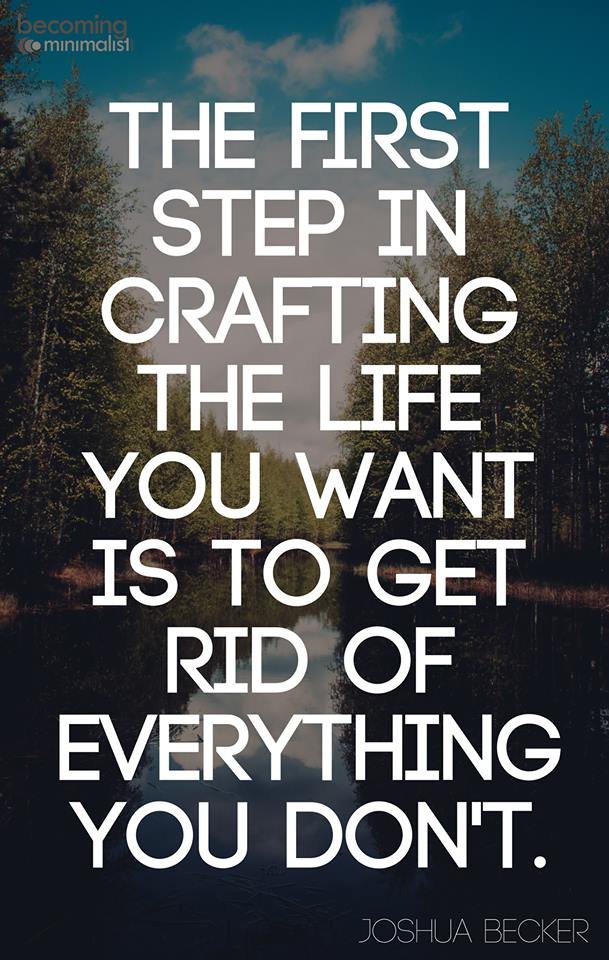
We constantly find ourselves wanting everything to be just as we thought of it in our heads. There are some merits to that, but if we spend more time constantly revisiting parts or steps until we get it perfect, or we keep adding icing way before we even bake the cake, then we won't ever finish, at least in the timeframe we want. There's a time for modifications and there's a time for progress. Learn to set aside revision for until you have some semblance of a finished product. You can always add things during the modification phase to make it just the way you envisioned it, without sacrificing too much time trying to do too many things at one.
It goes without saying that this advice doesn't apply to engineering, architectural and other endeavors that involve precise measurements. Play it fast and loose figuratively.
Pace Yourself
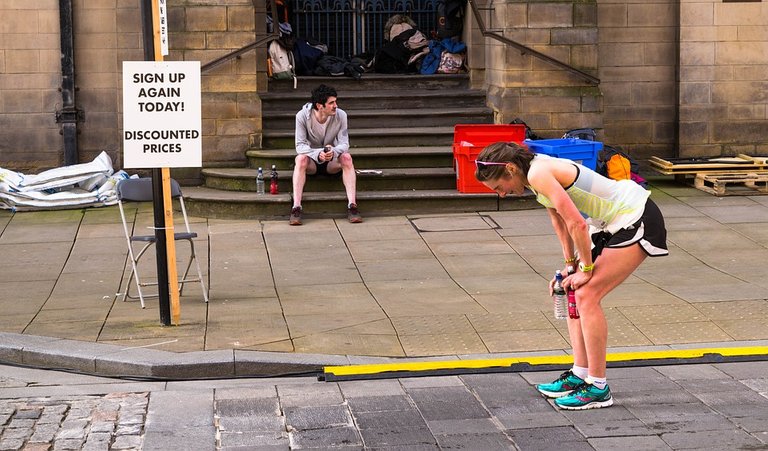
Life's a marathon, not a sprint. Sure there are many arguments supporting the need to get to something first. That whole concept even serves as the foundation of modern society. As Ricky Bobby put it, "if you ain't (sic) first, you're last." This whole race can get daunting if you're up against the whole world, hence why they call it the human race. Okay, that's an over exaggeration on my end, but I just wanted to emphasize the gravity of what most people feel.
Those who know me know my stand regarding competitiveness. There's a time and place for it. Sure, my sentiment isn't the most popular one, if it's even shared by other people at all. But, I digress.
We often feel like we're constantly running out of time. That's because we are. And, there goes 3-5 seconds of your life that you can't get back. I apologize for that, but I appreciate if you stuck around until this point. Whether we're competing with ourselves or other people, or trying to beat a deadline, or just trying to make the most of our lives, we often feel like we don't have enough time. That causes us to put unnecessary pressure on ourselves, which makes us stressed out. Unhealthy stress leads to our bodies degrading, and when that happens we lose even more time.
BREATHE.
Inhale for 4 seconds, hold it for 7, and exhale for 8 seconds.
I was a track and field runner in highschool, so it was a big transition when I participated in marathons during college. The biggest hurdle that I needed to overcome was that I often feel exhausted even before the halfway point. I have this habit of giving something my all, and eventually wear myself out quickly. (I'm not proud of it, but you can refer to my previous blog posts as proof) I've learned the hard way, and I don't want you, dear reader, to suffer the same fate.
Get comfortable with the fact that it's okay to go at your own pace. It doesn't matter if a lot of people pass you by. Who. Cares. The most important thing is that you have enough left in the tank to make it to the finish line.
Take care of your body, keep hydrated and eat lots of fruits and vegetable. We (currently) only have one body, so take extra care of it. (My fingers are crossed that we'll achieve immortality in our lifetime though!)
On that note, I just want to point out that this doesn't apply to high-turnover environments where deadlines are deadly and not making cutoffs get you cut. In those instances, give special emphasis to the Learn to Make Adjustments on the fly section above. However, do take care of your body.
That's a wrap! Allow me to extend my heartfelt appreciation if you took the time to read until this point. (Double the appreciation if you upvoted this post) Did I miss any key lessons? Care to share any thoughts and comments regarding anything on this post? Want to post links to related posts? Sound off below in the comments section! I'll reply to each and every message there :D
Image Sources: 1 (I modified the official NaNoWriMo logo) 2 3 (edited) 4 5 6 7 8 9

Since I don't post my NaNo updates (and no one in Steemit ever bothers to ask haha), I'll use this section to show my current progress so far as an avenue for accountability. As my buddy @anarcho-andrei once said, "as a symbol of my commitment I put inscribe this upon the blockchain to keep me accountable."
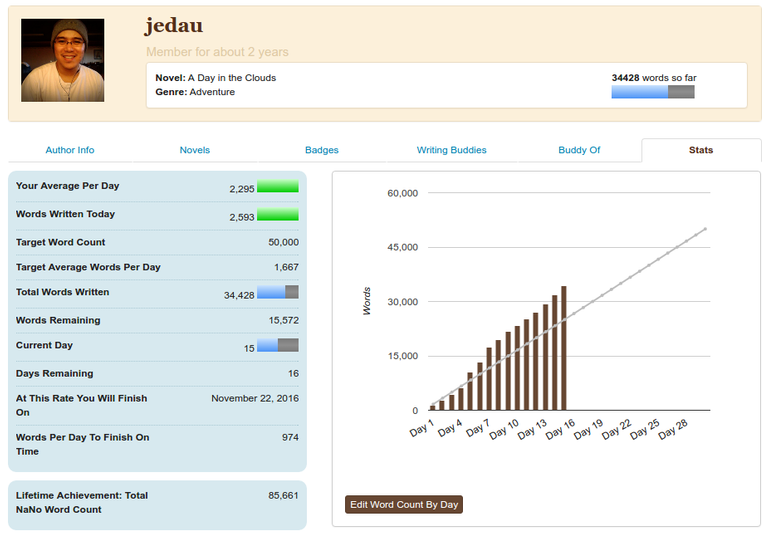
This has been one of my most solid years so far, and I attribute this to my experience. With 34,428 words as of writing, I am projected to finish by November 22, 2016 if I write 1,667 words per day. However, based on previous years, I'm eventually going to hit a slump, and would likely finish closer to the deadline. I've had a faster start during my second year of participation, but I finished on the deadline itself. The promising start was mainly due to my thirst for redemption from falling short on my first year.
The story I'm writing hits close to home, as it's inspired by my nephew's struggles. I chose to not post daily updates because I wanted to give the story the best chance at earning the most it's capable of. All of the proceeds would be transferred to my cousin, to help support my nephew. As it is, my earning power is not enough to even help buy the necessary medicines. Hopefully, I could get the chance to post it on Steemit sooner rather than later.
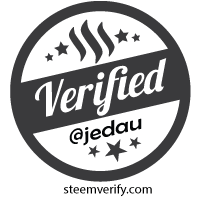
Shared on twitter
Thanks, @virtualgrowth! I really appreciate it. Even the 1% vote ;)
Disclaimer: I am just a bot trying to be helpful.
And, you most certainly are.
These are such great insights! I liked how you applied lessons that should be for a specific trade and made it accessible generally. Thanks for sharing this!
I always try to look for the interconnectedness of everything, that's why I'm glad that there are lessons that can be mined from writing and used for other personal projects.